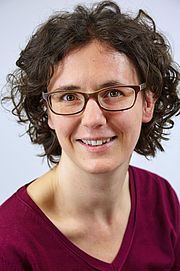In 2008, an individual or group under the pseudonym Satoshi Jakamoto published the Bitcoin Protocol whitepaper with the goal of laying the foundation for a free and independent digital currency. The Bitcoin protocol works with algorithmic trust instead of a central and coordinating authority. Bitcoin allows transactions to be carried out directly between traders, i.e. peer-to-peer. Bitcoin uses its own blockchain and yet, interestingly, the term blockchain is not found in the whitepaper; this term was created later. However, blockchain is not only the basis for digital currencies, but also a technology for tamper-proof documentation of processes and transactions.
On July 15, 2022, the "Blockchain in the Wine Industry" forum was held at Hochschule Geisenheim University. This industry meeting was organized by the Bund Deutscher Oenologen e.V. (BDO) and Hochschule Geisenheim University. The aim of the all-day forum was to present existing and practical blockchain applications from cultivation to marketing as well as scientific research results. After welcoming remarks by Prof. Dr. Erik Schweickert, President of the BDO, and Prof. Dr. habil. Jon H. Hanf, Professor of International Marketing Management at Hochschule Geisenheim University, the latter emphasized in his presentation the importance of data as an elementary resource in the wine industry that creates and shapes competitive advantages.
In the first keynote of the day, Felix Hosse from the Blockchain Founders Group showed important perspectives regarding the energy use of blockchain technology, illustrated by the example of Bitcoin. Traveling from Mendoza Argentina, Mike Tango Bravo, founder and owner of Costaflores Organic Winery and OpenVino, presented the benefits of a transparent ecosystem in the wine industry. Another application example showcased the tokenization of wine using Non Fungible Tokens (NFT). With blockchain application examples from the German wine industry, such as securing the authenticity of wines using vinID technology, the first WeinCoin from the Sanders and Sanders winery or also the video contribution on the current NFT from the Dreissigacker winery, the participants were able to gain an impression of the existing applications. Already well positioned in the beverage, specifically in the coffee industry, is FarmerConnect. In addition to the digital wallet farmerid for carrying out transactions, connecthub, an application that represents transparency across the entire supply chain, also impressed. In addition to the practical applications, scientific research results, including those of Dr. Nino Adamashvili from the University of Foggia, Italy, also contributed to the knowledge gained.
Thus, the forum, conducted in a hybrid format, brought together companies, wine industry stakeholders, innovators and academia, and served as a networking event where guests exchanged ideas, concepts and applications.
It is possible that NFTs today can already be seen as a gateway to the Metaverse, and just as the introduction of the World Wide Web in the early 1990s enabled entirely new types of Internet-based business models, the introduction of the Metaverse could, if necessary, enable the development of entirely new types of blockchain-based business models.
The event was moderated by Michael Paul Kramer, PhD candidate at the Chair of International Marketing Management.
A news article by Michael Paul Kramer





















